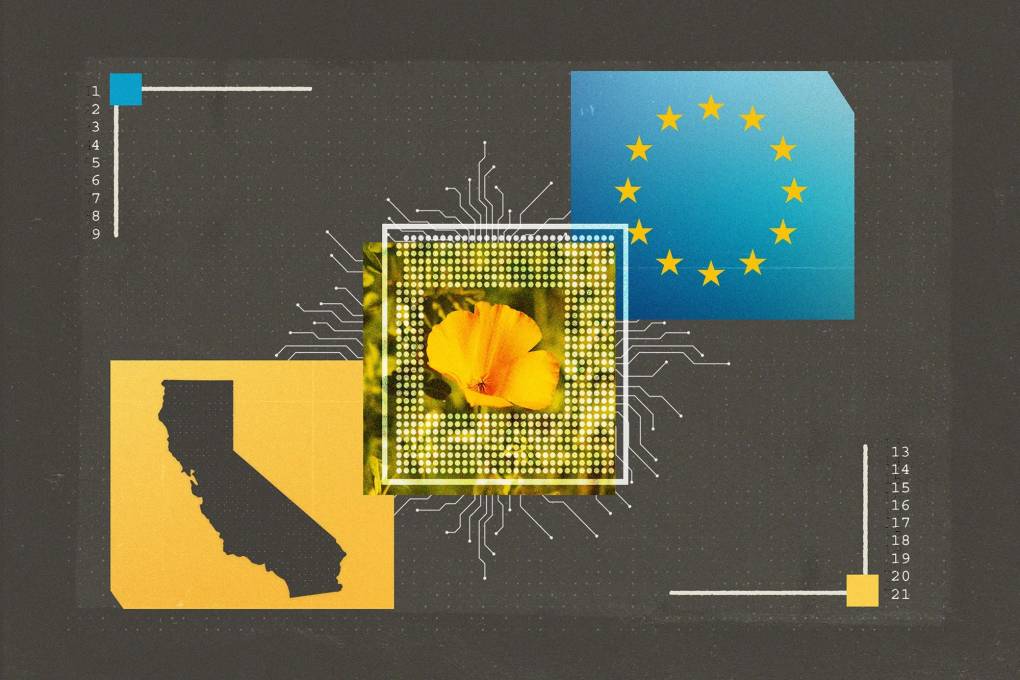
How California and the EU work together to regulate artificial intelligence
While the federal government remains passive, over 40 U.S. states are actively deliberating hundreds of bills aimed at regulating AI. California, renowned for its tech-forward stance and substantial economy, stands poised to lead this regulatory charge. Such is its significance that the European Union seeks collaboration with the state on AI legislation. In 2022, the EU established an office in San Francisco and appointed tech envoy Gerard de Graaf to foster better communication regarding AI laws and regulations. According to de Graaf, we are currently experiencing what he terms “the year of AI,” a pivotal period where California’s enactment of AI regulations could position the state as a trailblazer in shaping the future landscape of AI regulation in the United States.
Recently, de Graaf visited Sacramento to engage with key state lawmakers driving AI regulation initiatives. These include Assemblymember Rebecca Bauer-Kahan, who spearheads a bill mandating businesses and state agencies to report AI model test results to combat automated discrimination. Additionally, Democratic State Sen. Scott Wiener is championing a bill to regulate generative AI, while Assemblywoman Buffy Wicks proposes legislation requiring online platforms to watermark images and videos generated by AI, particularly deepfakes, ahead of elections. Notably, Sen. Tom Umberg, chair of the Senate Judiciary Committee, holds a pivotal role as California’s primary gatekeeper for AI regulations.
De Graaf’s Sacramento visits mark a strategic effort by EU officials to align with California’s AI regulatory trajectory. With the recent enactment of the AI Act by EU leaders, which governs AI usage across 27 nations, notable parallels emerge between the EU law and California’s proposed legislation. Both frameworks adopt a risk-based approach to regulation, advocate for ongoing testing and assessment of high-risk AI applications, and emphasize the need for watermarking generative AI outputs.
The collaboration between California and the EU aims to harmonize regulatory initiatives in two influential markets. Given that the majority of top AI companies are headquartered in California, such cooperation holds immense significance. The precedent set by the EU’s General Data Protection Regulation (GDPR) underscores the potential for California’s AI laws to wield outsized influence globally, a phenomenon commonly referred to as “the Brussels effect.”
Achieving coordination between California and the EU necessitates a shared understanding of AI’s definition to ensure alignment in regulatory frameworks. De Graaf emphasizes the importance of such coordination, highlighting the global nature of the tech industry and the need to avoid policy complexities for businesses navigating diverse regulatory landscapes.
In addition to legislative efforts, the California Privacy Protection Agency, tasked with safeguarding privacy and enforcing data deletion requests, collaborates closely with EU officials to ensure alignment with international privacy standards. The agency’s formation draws inspiration from the GDPR, reflecting California’s commitment to harmonizing privacy laws with global frameworks.
As California lawmakers and regulatory agencies endeavor to define rules for AI usage, alignment with international standards remains paramount. The California Privacy Protection Agency, akin to lawmakers, is in the process of formulating AI regulations to safeguard consumers, students, and workers. These efforts underscore California’s pivotal role in shaping AI regulation, with the potential to set precedents for global compliance standards.
More Stories
New Firefox ‘Privacy’ Feature Actually Shares Your Data with Advertisers
Firefox often finds itself in a challenging position, aiming to be a privacy-friendly browser while relying heavily on funding from...
Why the People Should Own TikTok
The Vision for Internet Reform Frank McCourt believes that the people should own a stake in internet platforms because they...
Access 3DS Games on Your iPhone Using This App
Since Apple revised its App Store guidelines in April, a slew of retro game emulators has emerged for the iPhone....
What Do the Digits in Phone Numbers Mean?
You probably never think about it, but what do the numbers in a phone number actually mean? Essentially, these numbers...
Rating of the “Jurassic Park” franchise from worst to best
Gather around your dinosaur fans as we take a look at our Jurassic Park movie guide, ranked from worst to...
Trigo Raises $100M to Expand Amazon-Style Cashless Store Technology • TechCrunch
Amazon has become an enabler of commerce, and today the startup, which is building technology to help retailers keep pace...


